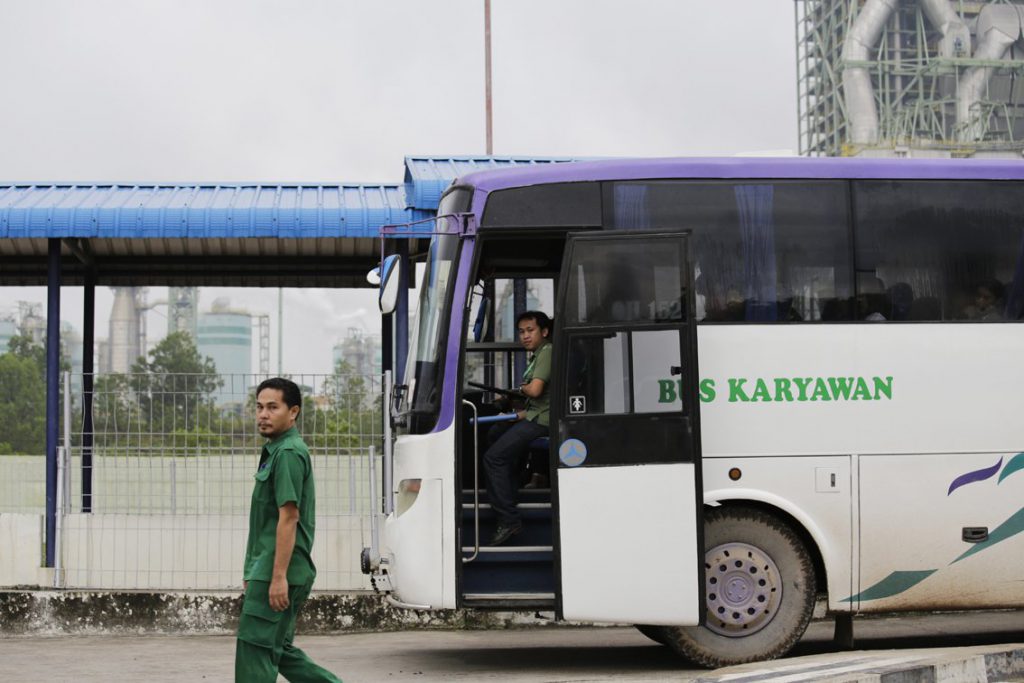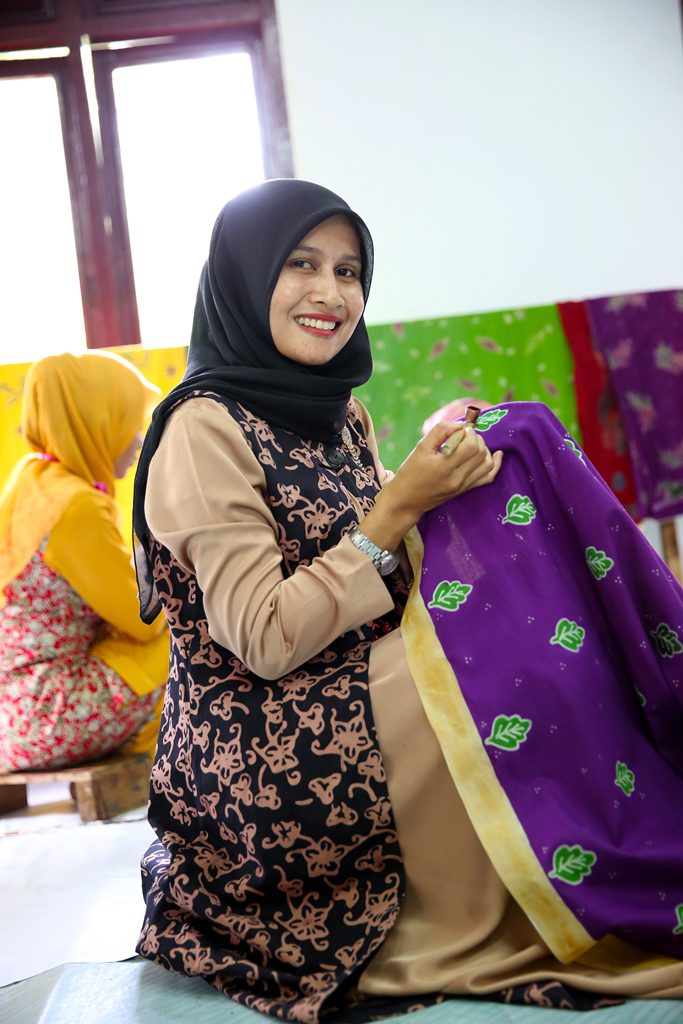New Beginnings for Riau’s Determined Entrepreneurs
A community development programme developed by PT Riau Andalan Pulp and Paper (RAPP), APRIL’s operational unit in Riau, is creating life- transforming opportunities for local entrepreneurs, fostering the growth of small-to-medium size businesses. Here are some of their stories:
From illegal logger to award-winning entrepreneur
For Tengku Effendi, 47, the career change could not have been more radical. Once an illegal logger, today he runs a transportation company from his home in Lubuk Bungo village in Riau province.
He joined the programme in 2006. Though the father of three admits the switch from illegal logging to running a legitimate business was hard, he pushed on and in 2014 his company won a RAPP award for implementing workplace health and safety principles.
“It wasn’t easy to shift gears from what I had been doing to running a transportation company but the programme has taught me a lot about being an entrepreneur,” says Tengku whose company, PT Idlal Bersaudara, transports fertilizers to RAPP.
RAPP community development manager Sundari Berlian says the company now works with 190 partners – including building contractors, transportation and labour suppliers, water truck operators and seedling suppliers.

Transportation services at RAPP complex in Riau by local entrepreneur
The garbage trucker turned transportation chief
Husni Thamrin joined the programme in 2001 and established his first company, PT Taro Putra Pesisir. Today, the 37-year-old and his wife Rohani run a heavy equipment and truck rental business with assets worth Rp100 billion (US$ 7.5 million).
He recalls: “I didn’t have a business background. My first venture was driving my father’s truck to transport garbage. As I gradually became savvy in business, I realised there was opportunity for me to scale up. I am thankful for the programme which has nurtured many local entrepreneurs, including me.”
In 2004, Husni changed the name of his company to PT Nilo Engineering to reflect his birthplace of “Nilo”, a village in Riau.
“PT Nilo has grown along with RAPP’s high demand for heavy equipment rental units,” says Husni. PT Nilo’s 30 heavy equipment units and 25 trucks are all rented by RAPP.
Businessman proud to be creating jobs for others
Sulaiman supplies coco peat to seven nurseries owned by RAPP to grow acacia and eucalyptus seedlings. His company PT Rifky Pratama Sanjaya, is based in Pangkalan Kerinci, the capital of Pelalawan regency in Riau province, and today employs 40 people.
Since joining the programme, he has raised the monthly supply of coco peat from 30 tons within the first month of operation, to as much as 600 tons.
Says the 38-year-old: “RAPP doesn’t give the capital for investment, but it made a recommendation to Bank Mandiri and Bank Rakyat Indonesia.” He secured Rp 1 billion (US$75,000) in loans from the two banks which he used to buy machinery, build a warehouse and set aside as working capital.
Proud to be providing a living for others, he says: “One of my staff members used to work odd times helping his fisherman father, and they barely earned Rp 1 million (US$ 75) per month. Working here, they can earn more, and some can even earn up to Rp 4 million (US$ 300) per month.”
Women craft a new future with batik
Hari Fitri Ramdhani, 32, of Pelalawan district, Riau, never imagined she could make a living from batik, a traditional fabric dyed with natural colors more closely associated with Javanese artisans.
Through its community development programme, RAPP funded the establishment of the Andalan Cooperative, built a workshop for the production house Rumah Batik Andalan (RBA) and a shop to sell the handmade batik.

Fitri Ramdhani, crafting batik cloth.
The co-op sought out the women to be trained and today 10 of them are working in RBA. All learned batik-making from scratch but can now make up to 130 pieces of batik cloth and yield about Rp 20 million (US$ 1,500) in monthly sales. They were trained by master batik craftsmen from Solo, Yogyakarta and Pekalongan.
Fitri says the money has helped her and her husband, who does odd jobs as a car mechanic, buy a house. She adds: “We have other buyers now, including (RAPP’s) guests who buy our batik as souvenirs to bring home, local administrators, staff of nearby companies and locals who buy batik from our shop in Pangkalan Kerinci,” says Fitri.




